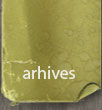Buscar
Pages
Posted by
Lilik Sukarti
In:
Correlative Conjunctions
Correlative Conjunctions
Correlative
conjunctions adalah konjungsi yang dipakai untuk menghubungkan unsur-unsur
kalimat antara kata dengan kata, frase dengan frase, dan klausa dengan klausa
(seperti halnya coordinating conjunctions).
Konjungsi
ini selalu digunakan berpasangan. Unsur-unsur kalimat yang dihubungkan harus
mempunyai kedudukan sejajar (parallel) sesuai dengan struktur gramatikal. Jika
subjek singular dan plural dihubungkan, maka subjek yang paling dekat akan
menentukan apakah verb itu singular atau plural.
Konjungsi yang umumnya digunakan
adalah:
- both…and
- either…or
- neither…nor
- not only…but also
- whether…or
- both…and
- either…or
- neither…nor
- not only…but also
- whether…or
Contoh:
-She can both speak and write Japanese.
- Both my sister and my brother play the piano.
- I’m going to buy either a camera or a CD player with the money.
- Either she goes or I go.
- Shakespeare was not only a writer but also an actor.
- He not only read the book, but also remembered what he had read.
- He is neither rich nor famous.
- Neither Tom’s mother nor his father spoke English.
- Whether you win this race or lose it doesn’t matter as long as you do your best.
- She was uncertain whether to stay or leave.
- I didn’t know whether to believe him or not.
-She can both speak and write Japanese.
- Both my sister and my brother play the piano.
- I’m going to buy either a camera or a CD player with the money.
- Either she goes or I go.
- Shakespeare was not only a writer but also an actor.
- He not only read the book, but also remembered what he had read.
- He is neither rich nor famous.
- Neither Tom’s mother nor his father spoke English.
- Whether you win this race or lose it doesn’t matter as long as you do your best.
- She was uncertain whether to stay or leave.
- I didn’t know whether to believe him or not.
Jika menggunakan coorelative
conjunctions untuk menghubungkan independent clauses, sebaiknya gunakan tanda
baca koma (,) sebelum klausa yang kedua.
- Either Jane will conclude the experiment by April, or she will ask for additional research funds.
- Either Jane will conclude the experiment by April, or she will ask for additional research funds.
Posted on
-
0 Comments
Posted by
Lilik Sukarti
In:
EXPRESSING AGREEMENT / DISAGREEMENT
5. EXPRESSING AGREEMENT /
DISAGREEMENT
Language expression :
To expres agree , we can
use
· Exactly
· I think so
· Certainly
· I agree
· Exactly
· I think so
· Certainly
· I agree
To show disagreement :
· I don’t agree with you
· I don’t think so
· I’m sorry , but you’re wrong
Ex :
A: “I think, students
should not cheating in examination time”
Posted on
-
0 Comments
Posted by
Lilik Sukarti
In:
ARGUING
Argument in informal logic
Argument is an informal calculus, relating an effort to be performed or sum to be spent,
to possible future gain, either economic or moral.
In informal logic, an argument is a connexion between
a) an individual action
b) through which a generally accepted good is obtained.
Posted on
-
0 Comments
Posted by
Lilik Sukarti
In:
EXPRESSION OPINION
EXPRESSION OPINION
Language expression :
To ask on opinion from
other, we can use questions such as :
· What do you think of..?
· What is your opinion about…?
· How about..?
· What are you views on ..?
To give on opinion you can use
· In my opinion..
· I think that.
· I really think..
· What do you think of..?
· What is your opinion about…?
· How about..?
· What are you views on ..?
To give on opinion you can use
· In my opinion..
· I think that.
· I really think..
·
It seem to me that..
Posted on
-
0 Comments
Posted by
Lilik Sukarti
In:
GIVING AND RESPONDING TO COMPLIMENTS
2. GIVING AND RESPONDING
TO COMPLIMENTS
Expression used for
giving compliments to other :
· Fantastic
· Smashing
· How marvelous
· That realy remarkable/ well done
· Great/great for you
· How wonderfull to listen to your great voice
· Fantastic
· Smashing
· How marvelous
· That realy remarkable/ well done
· Great/great for you
· How wonderfull to listen to your great voice
Expression use responding
:
· Thank you
· Thanks for you compliments
· I’m delighted to hear that
· It’s very kind of you to say so
· Thank you
· Thanks for you compliments
· I’m delighted to hear that
· It’s very kind of you to say so
Posted on
-
0 Comments
Posted by
Lilik Sukarti
In:
EXPRESSING CERTAINLY
1. - I Know That..
· - I’m certain that..
· - I have no doubt about..
· - It’s positive that..
· - You might be right about..
To express uncertainly :
· I’m not certain/sure/convinced that..
· We have doubt about..
Note : That is followed by clause eg . I’m certain
Posted on
-
0 Comments
Langganan:
Postingan (Atom)



















